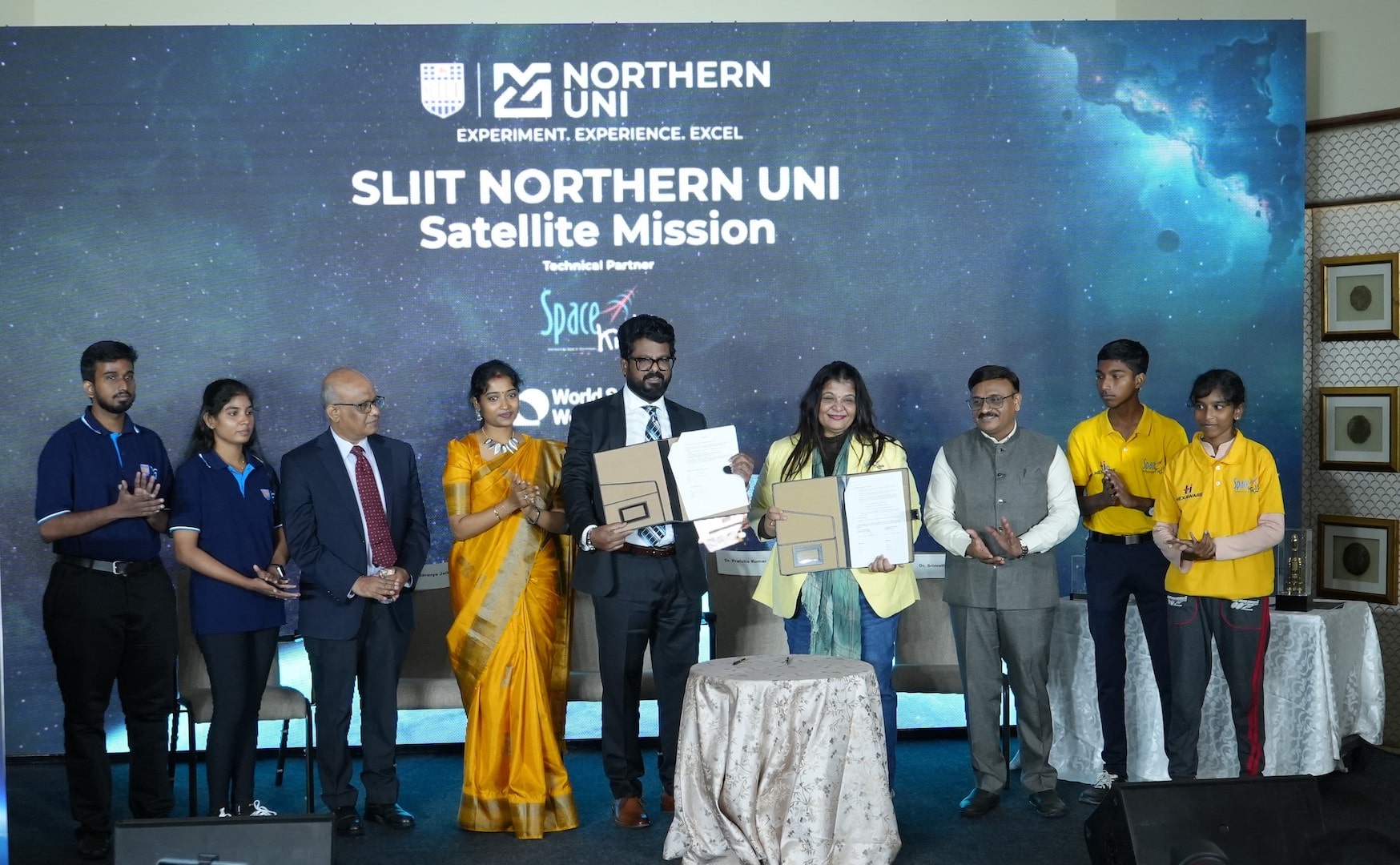Northern Uni has announced a strategic partnership with Space Kidz India to launch a student-led satellite project, marking the first of its kind for government school students in the Jaffna region of Sri Lanka. The collaboration aims to drive young minds into the domain of space technology, as students from both countries, India and Sri Lanka come together to design, develop, and launch a satellite. The announcement was made during World Space Week, symbolizing a new era of cross-border scientific collaboration between Sri Lanka and India.
A Milestone in Space Education:
The students will be designing and developing the satellite, equipped with advanced instruments to study the space atmosphere and run trials of innovative communication technologies. This initiative not only opens up new opportunities for students but also serves as a platform for them to participate in cutting-edge space research.
The partnership was formalized at an MoU signing event in Chennai on October 4th, 2024, attended by notable figures such as Dr Prafulla Kumar Jain, Director of InSpace Ahmedabad, Mr Indy Pathmanathan, Chairman of SLIIT Northern Uni, and Dr Srimathy Kesan, Founder & CEO of Space Kidz India, among others.
The project is a massive step forward for students in the northern region of Sri Lanka, offering them legitimate exposure to satellite technology while promoting scientific innovation across borders.
Empowering Future Space Innovators:
The collaboration between Northern Uni and Space Kidz India will help young space enthusiasts to engage in the complete process of satellite development; from design and integration to its final launch. The project aims to equip students with valuable skills in satellite technology, data analysis, and communications, giving them a competitive edge in the STEM (Science, Technology, Engineering, and Mathematics) fields. It also serves as an opportunity for students to contribute innovative solutions to global challenges through space research.
“This initiative is a giant leap for both Sri Lanka and India in fostering a culture of scientific collaboration and mutual innovation,” said Mr Indy Pathmanathan, Chairman of SLIIT Northern Uni. “Our students will not only develop advanced technical skills but also learn the value of teamwork and shared goals across borders. We’re building more than just a satellite—we’re building a future where innovation knows no boundaries.”

Cross-Border Collaboration for Global Innovation:
Dr Srimathy Kesan, Founder & CEO of Space Kidz India, highlighted the importance of this collaboration for both nations. “This project represents a shared vision for education, technology, and space exploration. By engaging students from Sri Lanka and India, we are planting the seeds for future generations to work collaboratively on global challenges. Space technology is a powerful platform for innovation, and this project is just the beginning.”
Project Phases and Student Involvement
The project will be carried out in two key phases:
Phase 1: Training in space science and satellite technology will be provided to 50 school students from Sri Lanka, 10 school students from India, and 50 college students. This phase aims to give students a solid foundation in satellite development, blending theoretical learning with practical experience.
Phase 2: Thirty college students from Sri Lanka will be directly involved in building and integrating the satellite. They will work with space technology experts from India, gaining hands-on experience in the entire satellite construction process. An additional group of 15 college students and 50 school students from Sri Lanka will travel to India to witness the satellite launch, offering a powerful, real-world learning experience.
A Collaborative Future for Space Technology:
This student-led satellite project is more than just a technical achievement; it will boost the relations between India and Sri Lanka in the field of space science and education. India is among the top 5 countries in space exploration and space technology developments; the Indian Space and Research Organisation (ISRO) made the soft landing near the south pole of the Moon on August 23, 2023, later the spot named Shiv Shakti Point. The experience and learnings of India in space exploration will be very helpful for the collaboration.
The initiative aims to inspire the next generation of space explorers, scientists, engineers, and innovators by offering students the chance to participate in cutting-edge space technology. The skills these students gain today will help shape the future of space research and global technological advancements.
As space technology continues to evolve, initiatives like this will ensure that young minds from diverse backgrounds have the opportunity to contribute to the future of exploration, communication, and scientific discovery.












